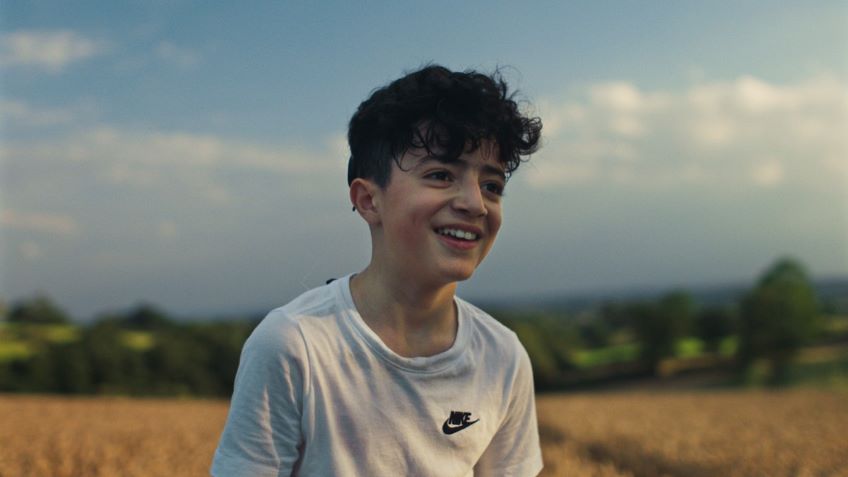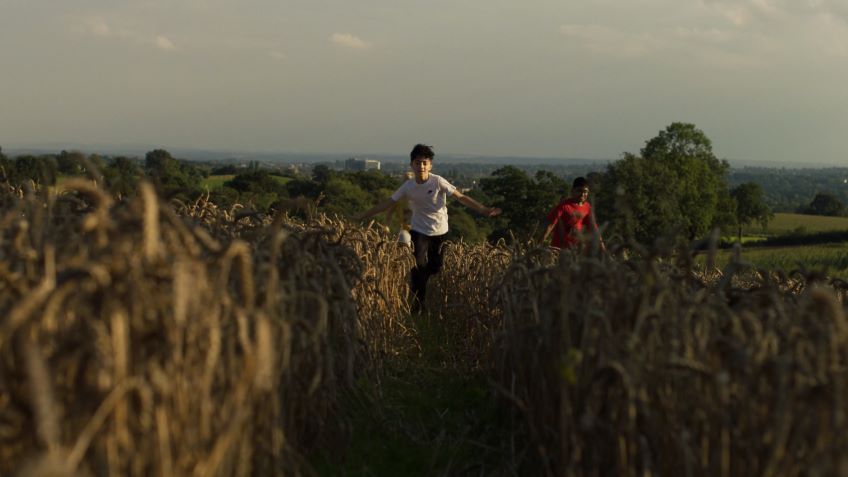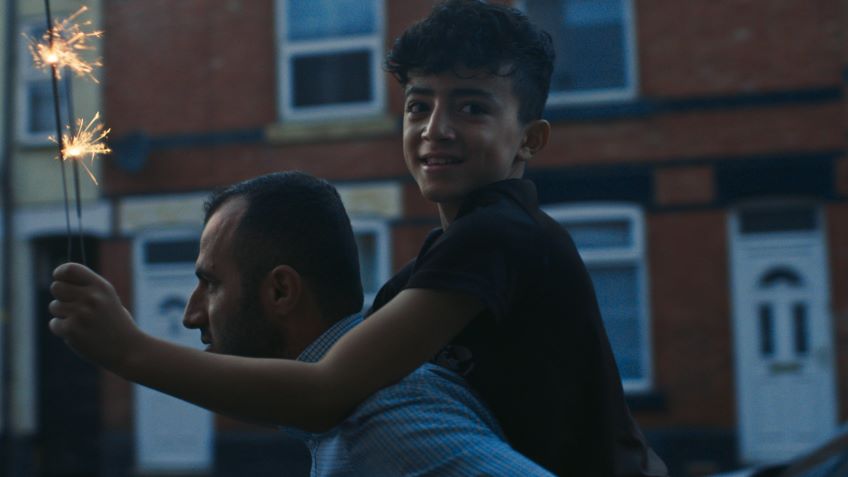Joyce Glasser reviews Name Me Lawand (July 7, 2023) Cert PG, 84 mins. In cinemas.
‘Sometimes I think my brother is on the wrong planet. I wish we were on a different planet where he wouldn’t be different’, says Lawand Hamad Amin’s older brother Rawa at the start of Edward Lovelace’s moving documentary, Name Me Lawand. Being different – another way of saying deaf – is a stigma if not a crime in Iraq. In Kurdish, Lawand’s father despairs that the teachers say they cannot teach him and his mother laments that their doctor says he will never communicate.
Lawand was born deaf and spent the first five years of his life bullied, ostracised and feeling lonely, even in his own family. He was then traumatised by a near death experience in the hands of people traffickers when his family left Iraq (presumably Kurdistan from a comment Rawa makes later in the film). It is also a story that puts a human face to the other side of the immigration problem discussed on Newsnight: the individual promising human face of something between illegal immigration and asylum seeking. Above all, Name Me Lawand shines a light on disability, the damage caused by isolation and discrimination, and the empowering development that comes with compassionate teachers, friends and a sense of belonging.

We never learn the reason for the family’s departure for the UK nor do we get a clear idea of the politics behind his family arrival, accommodation in a nice house in Derby and a coveted place at the specialist Royal School for the Deaf in the city. Lovelace is not interested in a political debate or even brokering the subject of what must be a waiting list for British children at this incredible school with one-on-one lessons.
So we quickly get caught up in Lawand ’s journey, captured over four years. Lawand mentions a man on the beach who was the first deaf person he ever met. This meeting seems to have taken place in a refugee camp. The mysterious stranger may have directed Lawand’s parents to the Royal School of the Deaf and even helped the boy obtain a place there. Or they may have aimed at Derby having heard about it through other means. All this is unclear, perhaps unimportant.
Watching Lawand learn from scratch is a fascinating experience. The teachers admit that Lawand poses special challenges for them. First, the language problem. He will be learning English sign language and no one in his family signs, nor is English their first language. Lawand’s brother learns basic sign and they become closer as a result of an ability to communicate. In a touching scene at the end of the film, we see the parents, finally having a go in a signing class.
Another challenge is Lawand’s past. When Lawand says ‘sometimes I get so angry I want to hit someone,’ his patient, brilliant teacher Sophie (who is deaf and grew up in a dysfunctional family on a housing estate) asks him where he came from. Lawland will not answer. As she gains his confidence, he tells Sophie about his memories of running from dogs and hearing voices when packed in the back of a truck.
Sophie (and other teachers) open up Lawand’s horizons, not only through addressing his mental health issues by talking about them, but by giving him new experiences, including theatre and music. He tries playing the drums after feeling the vibration through a balloon. Soon he is battering the drums to exorcise his frustration.
Even more than the teachers, it is the friendships Lawand forms through the school that alleviate his loneliness and give him confidence. Lawand can, at last, talk with his peers about the things young boys need to talk about and play sports, including the ubiquitous football.

‘My signing name is ‘Why,’’ Lawand tells one of his new friends at school. Signing, Lawland explains that he is the inquisitive type and has many questions. Still signing, he confides that when he was younger he thought his name was “Bad.”
While the school is astonished at Lawland’s progress, the Home Office (the villain of the story) threaten the family with deportation. One of the issues is that Lawand could learn another language to sign in – in another country – and another is that he is not making sufficient progress to justify the expense.
The family’s and the school’s interaction with the Home Office is glossed over, but we are, at this point, so vested in Lawland’s academic and psychological development, that we are happy when the community rally around the family, raising funds for lawyers and signing petitions. There is some business about an inspection to see if Lawland is really making sufficient progress, but the outcome is unclear.
Derby community support was documented in the newspapers, so we know the community wanted the family to stay. That said, it is not clear what Lawand’s parents do for a living (if allowed to work), how they interact with their new town or how Rawa (who confesses to being homesick at one point) is faring in school or at home with the intrusive film crew.
This lack of clarity is understandable with complex and prolonged legal and administrative issues. But what is unnecessarily confusing is the directorial interference in the “fly-on-the-wall” manner of filming. Lovelace borrows impressionistic visuals from his previous film, The Possibilities are Endless, that blur the line between shooting and staging. Some purple passages show Lawand and his friends running through the fields, or Lawand lying on the grass with dappled sunlight. His nightmares about the journey from Iraq are clearly “imagined”.
By the end of the film there is no doubt of Lawand’s progress. He has not only come out of his shell as a social being with his peers but chooses to travel to Birmingham and represent himself in the Immigration Court. And then he becomes involved in the campaign to pass the British Sign Language (BSL) Act. Now he travels to London – leading his proud father. There he sees hundreds of deaf people of all ages, races and nationalities. ‘I used to think I was the only one’, he tells Lovelace. ‘But that day changed everything.’




